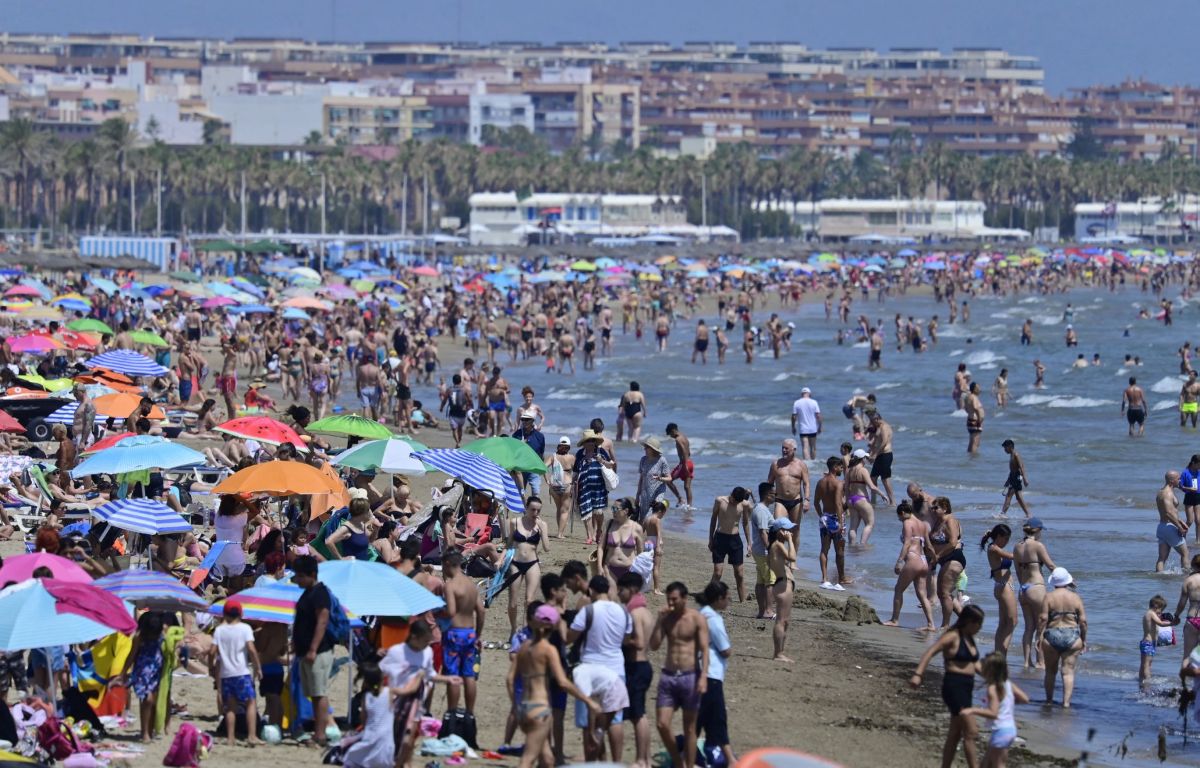Inside Spain: Fake wine and the bad side of living on the coast

In this week’s Inside Spain we look at how the Spanish wine counterfeiting industry is far bigger than you may have expected, and why you should think long and hard before buying a property that’s close to a beach.
It may sound strange to talk about counterfeit food and drink, but it exists and it’s a problem.
The latest report by the EU’s Intellectual Property Office (EUIPO) reveals that fraudulent booze is hitting the alcohol industry hard, costing it billions of euros in sales, and Spain is the worst affected country.
The Spanish economy loses €380 million in sales every year to this illicit practice, which also leads to the average loss of 1,100 jobs in Spain annually.
Drink counterfeiters' preferred forgery is that of wine, which they pass off as Spanish when it isn’t.
EUIPO notes that the rise of online commerce "has opened up new avenues" for the sale of these fraudulent tipples.
Customers hardly stand a chance as they only see the products when they’ve paid and been delivered to them.
"Criminal networks use particularly "sophisticated methods" when it comes to circumventing alcohol quality controls, which include reusing original bottles and printing fake labels.
And where are these phoney Spanish drinks being produced and packaged, you may wonder. Turkey and China stand out as the two main countries of origin of forged food and drink seized by EU authorities.
During the latest annual joint operation carried out by Europol and Interpol against this type of crime, dubbed Opson, counterfeit food products worth €91 million were seized.
The operation spanned 29 countries and resulted in the seizure of 22,000 tonnes of food and 850,000 litres of beverages, primarily counterfeit olive oil and wines labelled as Protected Designation of Origin (think Rioja and Ribera del Duero wines, Cava, Sherry etc).
Specifically, Spain has a total of 388 food and drink products covered by Protected Geographical Indications, only behind Italy with 888 and France with 771.
Our advice to avoid getting ripped off is to simply buy food and drinks from trusted Spanish stores and supermarkets in person, but there are expert fake wine catchers such as Maureen Downey that can give you tips if you want to carry out your own investigation.

Now onto something completely different. Beachside properties in Spain, or any real estate close to the coast for that matter, certainly come with a heftier price tag, even though the return on investment will almost certainly pay off.
But if you intend to enjoy that casa cerca de la playa (house close to the beach) during the summer months, there’s a big chance you will be competing for space with hoards of holidaymakers.
Mallorca, Alicante, the Canaries, the Costa Brava, Costa Blanca, Costa del Sol, the list goes on. If your municipality has beaches, there’s every chance that you, other residents and tourists will be vying for parking spots, room on the promenade and sand in which to lay down your beach towel.
In 2024, Andalusian daily El Correo de Andalusia reported that coastal municipalities in the southern region tripled their population during the summer. Quiet towns go from having 30,000 to 100,000 inhabitants, placing huge pressure on public services.
It’s become common for there to be traffic lights on the roads leading to beaches that prevent beachgoers from approaching already packed locations, and in some cases there are actual traffic lights at the beach to control pedestrian access to the sand.
Some town halls have had to hire private companies to monitor the flow of tourists, as in the case of Xàbia in Alicante. But such is the challenge of ensuring that beaches such as Granadella or el Portitxol don’t succumb to complete gridlock (even when charging people for parking) that this year no company has taken interest in the tender.
With tourism numbers up every year in Spain (this year the country may hit the milestone of 100 million international visitors), the problem isn’t going to get any better.
Therefore, if you’re considering buying a coastal property in Spain but you’re doing it part to enjoy the lifestyle and peace and quiet, keep in mind that for several months of the year, there’s a good chance you won’t get that.
Factor in as well that properties in the mountains - where you could have a swimming pool built - are on average 35 percent cheaper in Spain than coastal homes.
READ ALSO: Why you should think twice before buying a beachfront property in Spain
thelocal





